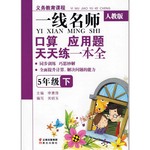题目内容
The message is very important, so it is supposed_____as soon as possible.A. to be sent B. to send C. being sent D. sending
A
解析: be supposed to do是固定搭配。又因it(the message)与send因为被动关系,故用动词不定式的被动语态。

练习册系列答案
 新课标同步训练系列答案
新课标同步训练系列答案 一线名师口算应用题天天练一本全系列答案
一线名师口算应用题天天练一本全系列答案
相关题目
The spokesman did not give out the details of the message, saying, “it should not be made public as it is a ______ issue”.
|
A.basic |
B.current |
C.sensitive |
D.sensible |